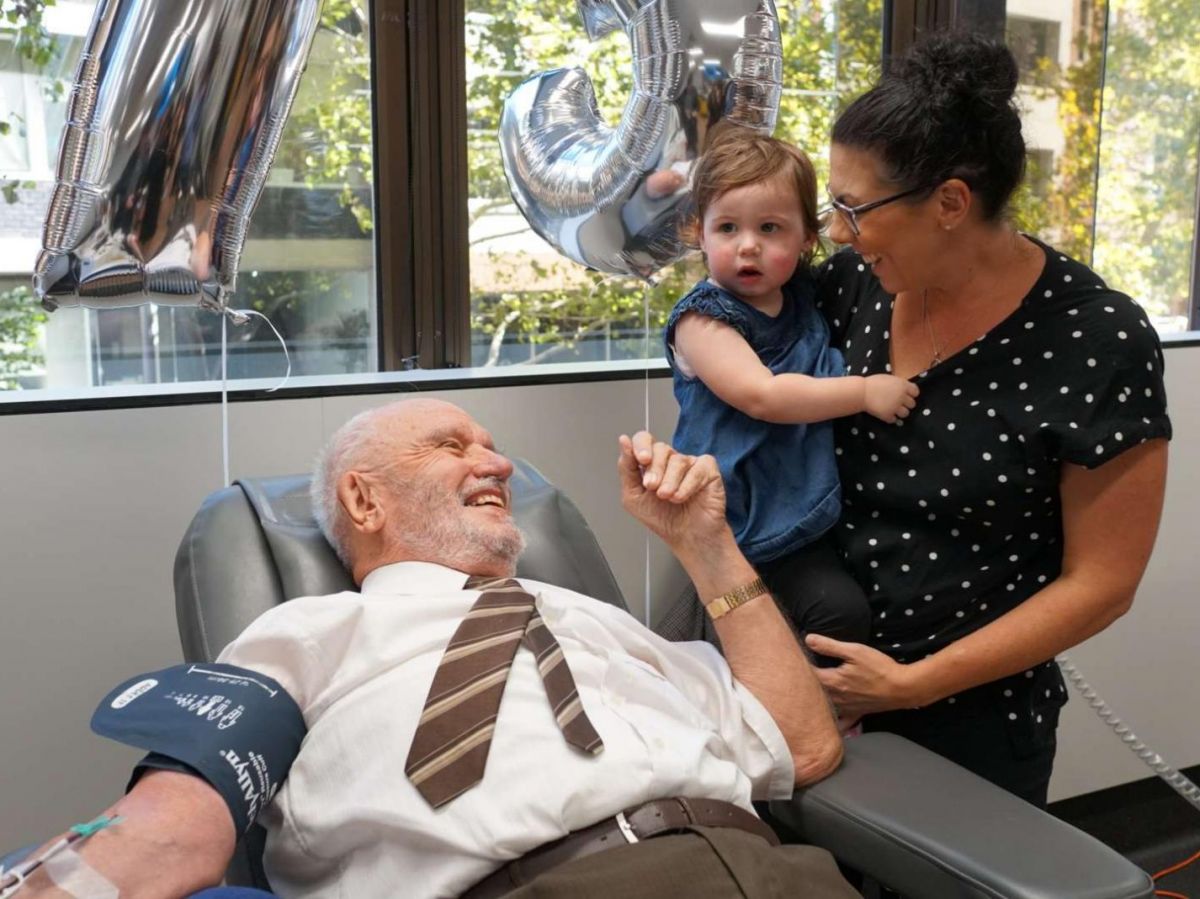He was for Australia "the man with the golden arm": James Harrison, one of the world's most prolific blood donors, died at the age of 88 in his sleep on February 17, 2025, his family announced to the BBC. In 2018, L'Australian Red Cross Blood Service officially paid tribute to him for his astonishing number of donations: 1,173! A world record he held until 2022, when it was surpassed by a man in the United States, according to the BBC.
Rare antibodies that saved 2.4 million babies
This Australian's story is touching. At the age of 14, James Harrison underwent major chest surgery, leaving him dependent on blood transfusions to survive. It was at this point that he promised to donate blood himself once he came of age. A promise he kept four years later, when he became a regular donor. Very regular, in fact, since, with 1,173 donations in 60 years, he gave on average every 19 days!
It was a decade later that he learned that his blood, and in particular his plasma, contained a rare and important antibody needed for anti-D injections, given to mothers whose blood is at risk of attacking their unborn babies. James Harrison then moved on to plasma donation, which has saved 2.4 million Australian babies, including his own grandson, since his daughter also benefited from anti-D injections.
Nicknamed "the man with the golden arm" because he always gave through his right arm, which he said was less sensitive, James Harrison was awarded the Medal of the Order of Australia for his incredible and continued support to the blood service and the anti-D program in 1999.
James Harrison in 2014, at the age of 74. Credits: CB2/ZOB/WENN.COM/SIPA
17% pregnant women need an anti-D vaccine to protect their baby
When a person's red blood cells have the Rhesus D marker on their surface, they are said to be Rhesus D positive (Rh(D)+). Otherwise, they are said to be Rhesus D negative (Rh(D)-). These markers are hereditary, just like the blood groups. But when a pregnant Rh(D)- woman is carrying a fetus that has inherited the Rh(D)+ marker from its father, she can develop antibodies against the unborn baby's red blood cells if some pass into her own blood. The mother's antibodies then cause hemolytic disease, that is, the destruction of the fetus's red blood cells by the maternal immune system, which can lead to the death of the unborn child or severe brain damage.
To prevent this, the pregnant woman must be given anti-D, an injection containing antibodies that will attach to the fetus's Rh(D)+ red blood cells present in the mother's circulation before her immune system has had time to take action. This treatment works in 99% of cases, provided that the antibodies are present in sufficient numbers.
Read alsoUnpublished: 80% of women have iron deficiency in the 3rd trimester of pregnancy
However, these injections are made from donor plasma. Very few people have these antibodies, and they are very strong in James. His body produces a lot of them, and when he donates, his body produces more. This makes him a very special case.", said Jemma Falkenmire, spokeswoman for the Australian Red Cross, in 2015 at Sydney Morning HeraldScientists are still unsure how James Harrison's blood became so rich in anti-D, but some work suggests it may be linked to the large blood transfusion he received at age 14, the study said. BBC.
About 150 other donors are participating in the anti-D plasma collection, but none appear to be as rich in antibodies as James Harrison. About 171 pregnant women need an anti-D vaccine to protect their babies, and every batch of anti-D manufactured in Australia contains Mr Harrison's blood", wrote the Australian newspaper. More than 3 million doses of Anti-D containing James Harrison's plasma have been administered to Australian mothers since 1967.

